5 Reasons The Amish Are “Not As Spooked” About Coronavirus
I didn’t plan to post so much on the coronavirus situation. But then again no one expected it to be this disruptive.
So here’s one more piece – but one which I hope presents a different and possibly helpful perspective.
I’m not going to say that I agree with everything advocated here from the Amish side.
But I will say there might be something valuable to take away from within these 5 points.
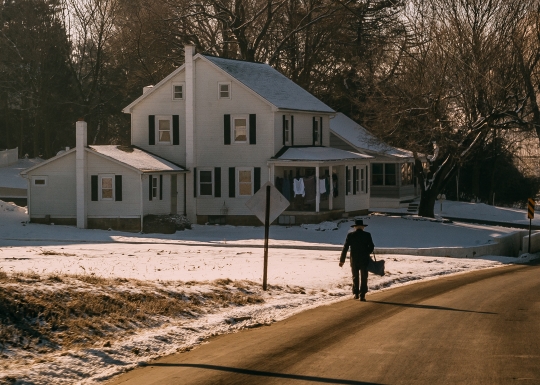
This York Daily Record article came out yesterday giving the perspective of Amish in Lancaster County regarding the COVID-19 event we are currently going through.
While it focuses on Lancaster County, I believe the overall perspective presented in the article is accurate for most Amish.
In short: the Amish are not as worried about it.
Why? I think this boils down to a few factors. The article does a good job of bringing those out. Quotes from the article plus my commentary below.
Why aren’t Amish as worried about COVID-19/coronavirus?
1. No one has gotten sick yet in their communities.
There is a feeling of being somewhat isolated from the disease, as one Amish woman in the article, going by Mrs. Stoltzfus, explains:
“Sure, I’ve been telling my children to wash their hands more with soap, but we’re not constantly being reminded of it. And I think we’re less likely to come into contact with it in our communities.”
So it can feel like an English thing or something happening “out there”.
That could change if and when several Amish people come down with severe symptomatic infection that lands them in the hospital (though, that’s not guaranteed to happen).

2. Confidence in natural medicine and “homegrown” health practices.
Here’s an Amish woman named Ruth Lapp:
Ruth Lapp said she always let her babies crawl on the floor when they were young. And when her children complain of a sore throat, she gives them a spoonful of vinegar, a remedy she says could cure any infection.
She believes this “priming” of the immune system, makes the Amish less susceptible to a major health outbreak.
and:
“It’s important that your body fights on its own…most of the time it can fight its own things,” Lapp said. “And it’s not that we’re against doctors, but we try to take care of ourselves first. If we go to the hospital, we would probably be exposed to more germs.”
This fits with an approach common among Amish, of treating ailments first at home with family remedies, and conventional medicine a second-line solution for many.
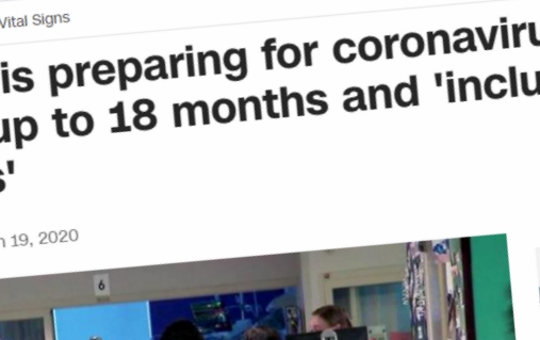
3. They are not constantly bombarded with scary headlines and predictions.
Ruth Lapp again:
That’s why Lapp, an Amish wife and mother living on a farm in Paradise, Pennsylvania, is calm as she talks about the novel coronavirus. It’s not something that is on her mind much, she said — a statement that contrasts sharply with the rest of Pennsylvanians amid the governor’s sweeping shutdown of businesses and state services.
When asked how the Amish community is responding to the recent outbreak — the hysteria even — she replied: “How should we be responding?“
and:
Mrs. Stoltzfus, an Amish housewife who preferred to be identified only by her last name, said her community is well aware of the pandemic — “But we’re probably not as scared.”
“We aren’t watching the news all day like everyone else, so I would say we aren’t as spooked by the coronavirus,” Stoltzfus said.
Not having a smartphone which pings you with every new death report is probably psychologically healthy at a time like this.
And while not at all completely isolated, Amish are to varying degrees separate from English society – having their own stores, social circles, etc.
Thus they are not hearing as much constant chatter/dire predictions/panic related to COVID-19 and coronavirus.
4. Different view of what “healthy” means.
Steven Nolt comments:
“The Amish view health as ‘Can I do my job? Can I get up in the morning and work?'” Nolt said. And with that perspective, preventive medicine can take a back seat. “The Amish value tradition too and that can trump the authority of modern medicine or the claims of science.”
If you’re getting up every day and functioning and feeling good, you’re not worrying about if you might be an asymptomatic carrier – a walking “disease vector” – to use a term that’s been out there a lot lately.
5. Strong religious faith in God helps to alleviate fear of death.
Amish on the whole have a strong Christian faith, believe in an afterlife, and accept happenings and tragedy as part of God’s plan.
When you see yourself as just passing through this world, with a living hope of reaching a better place after a faithful life well-lived, that can help you to fret less about worldly dangers.
This is a message Amish are constantly hearing from their preachers and reading in daily devotions and so on.
That makes for a calmer and less anxiety-ridden person than one who is getting 24/7 scary headlines – and who maybe believes this world is all there is.
To recap, the quotes above were taken from members of the Lancaster County community, the largest Amish settlement.
It is located in a pretty densely-populated part of the country, and it has many business and other ties to the non-Amish world.
I would say that in a smaller, more isolated, and/or plainer community, some of the factors listed above (especially #1, 2, and 3) could be operating at an even stronger level.
Time will tell
It looks like the idea of hand sanitizer and frequent handwashing has taken hold. Though church services continue in Amish communities, the social distance concept might not be a bad idea, at least until the course of things reveals itself, and especially for higher-risk people.
We’ve seen some signs of that with at least some Amish schools being closed, and multiple mud sales now canceled.
Despite what some might feel, the Amish are not that isolated, or immune to coronavirus. It could very well be that a week or two from now the disease has appeared in their communities and many are stricken. Or, it may pass by with mild to little impact.
There are a lot of predictions and prognoses happening out there now about what could happen with COVID-19 in general. Only time will tell.
Image credits: landscape – The Shared Experience; Amishman walking – Tristan Loper; thermometer – Charos Pix; Phillipians 4:8 – Garry Wilmore




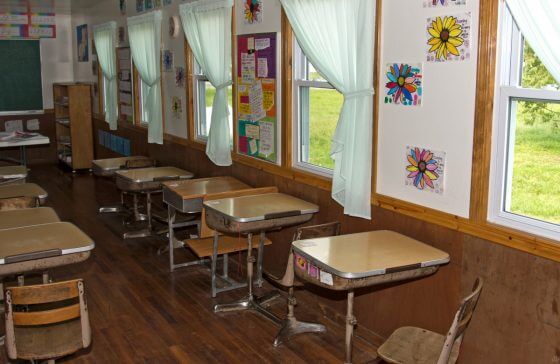

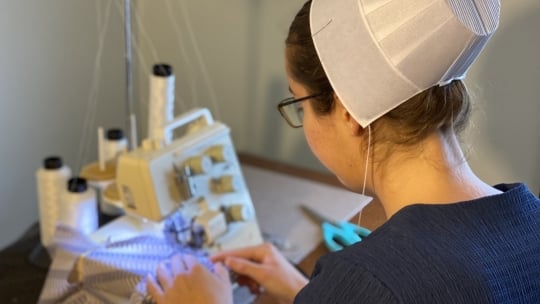
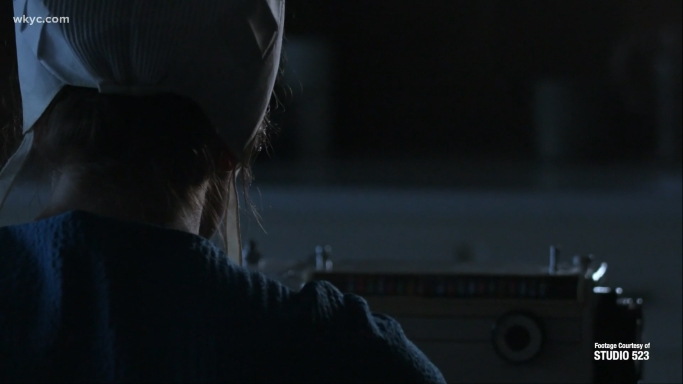
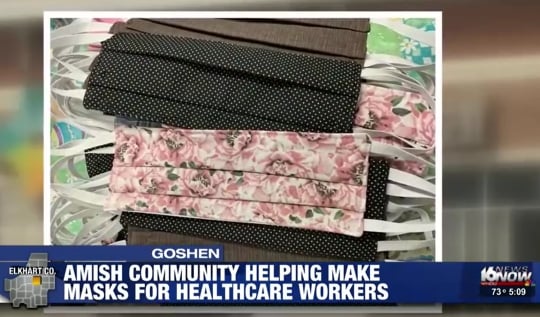
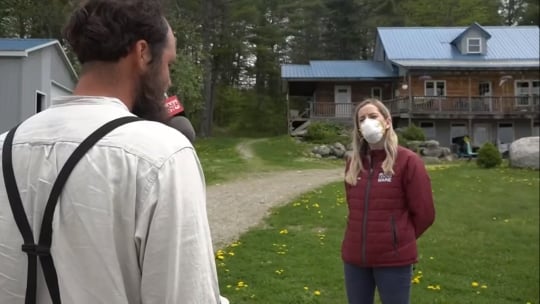
CDC confirms Amish conclusion
Where I am in tennessee, schools, government offices, restaurants, and more are closed. And yet there are no cases of the virus in this area. People have been laid off from their jobs, in many situations permanently, with no way to support their family without government financially stepping in. It’s as if everyone is afraid of a ghost. No one knows of anyone who has gotten the Corona virus.
So I decided to look at the CDC website to see just how pervasive this illness is. The facts shown on their website is very enlightening. Compared to the common flu, the Corona virus has an extremely low mortality rate. Only 201 deaths from it in almost a month. Compare that to the mortality rate of the common flu which is estimated to kill over 36,000 people a year. A figure that I have my own personal doubts about. Those that are at the highest risk for dying from the Corona virus are those with asthma, hepatitis, or aids. And they are only at risk if they contract it. The key word is at risk. It’s not an absolute. In my opinion the safest thing the Amish or mennonites can do to prevent spreading diseases of any type within the church, is to stop the use of the holy kiss. I’ve noticed that whenever someone has a cold in our church, everyone seems to get it. I don’t think it’s a good practice. And I absolutely don’t believe that the holy kiss was ever a direct kiss on the mouth by the early church fathers.
Coronavirus
so… this is a brand new virus and it started in the states with one case just over a month ago. medical professionals recognized what a threat this was and almost the entire country is in lockdown. Despite those efforts in a matter of a few weeks we are up to 700+ deaths that we know of. The numbers are doubling every second day. And as a reminder this is with the extraordinary and unprecedented measures to mitigate the spread. Unlike the common flu we have no vaccine and no real way of fighting this.
All experts agree that we are still weeks away from the peak of the first wave. Any vaccine is at least a year away and we don’t know if a second wave will hit after the first subsides. Most of these cases are in hotspots in NY, NJ, CA, FL. These massive cities are at capacity in their ICU units and with their equipment and staff. The numbers will continue to rise steadily for at least a month as resources become scarce. If/when a cluster appears in a rural areas it will overwhelm small hospitals in days.
Will we survive this? Of course… but we are put here on Earth to care for our brothers and sisters and to love our neighbors. I argue that you can’t do that if you don’t take this moment in history seriously and with care. You might be fine with horrible symptoms for a week. That doesn’t mean a co-worker, fellow church member, family member, neighbor may not start coughing up blood, need to be intubated, have their lungs stop working or die.
the economy will eventually recover and shame on us if we elevate money over lives.
Economic recession and/or depression leads to people losing their jobs and unemployment is associated with suicide. There are many ways to die but suicide has to be one of the worst (it’s usually men who kill themselves, by the way). That’s an extreme example but supports the point that economic activity also contributes to people’s well-being, stability and health. It’s not so simple as saying “the economy will eventually recover and shame on us if we elevate money over lives.”
One thing seems clear...
The Amish are a practical people. While I’d agree the five factors cited are significant, I think it’s important to stir in the fact that for many reasons, they don’t live in fear. They look both ways when crossing because it makes sense; not because they are afraid of being hit. By way of analogy, we have a situation where people aren’t going near roads at any cost.
Gelassenheit.
Fear kills too
It’s a good point Walter. We need to be careful but also sensible. Fear is its own kind of infection. I think I heard it said recently that fear can take your life but leave you alive.
I agree with being careful and doing some of the sensible things we are doing, but I think we need to find some sort of balance for the medium and long-term especially.
Amish Are Not As Spooked.
The Amish DON’T feed into the FEAR. They use common sense. They take care of their own. They don’t participate in any of the hog wash propaganda.
They are a good measure of how screwed up the rest of this country & this world really is.
I love the Amish opinions
I love what you can learn from the Amish people.I love reading their books.A lots of it is interesting,and tells the truth.l can remember be little and my mom did some of the things they do.I would love to go to one of their flea market.They seem so much fun.l would love the items they make.l love reading their point of views .